Midlife Challenges And Intentional Choices: Future-Proof Strategies With Diana Wu David
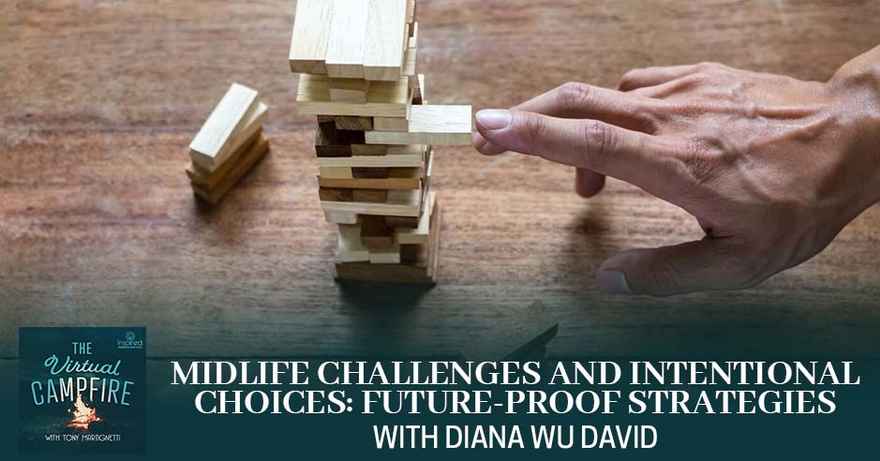
As we go through midlife changes, we increasingly need to find not only success but a life aligned with our deepest values. In this episode, Diana Wu David talks about midlife challenges, intentional choices, and the power of meaningful conversations. She explains how to create a satisfying life, not just a successful career. Drawing insights from her book, Future Proof, she shares how she got through the crossroads of her own life-changing decisions. Tune in now and learn how to future-proof your life!
---
Listen to the podcast here
Midlife Challenges And Intentional Choices: Future-Proof Strategies With Diana Wu David
In this episode, it is my honor to introduce you to my guest, Diana Wu David. She is the bestselling author of Future Proof: Reinventing Work In an Age of Acceleration. She's a former Financial Times executive, a top 50 global work futurist expert on executive leadership and boards, and bestselling author of the Inc. Magazine Top 10 Innovation Book, Future Proof. She helps people and organizations understand the future to find their place in it with a focus on preparing the highest echelons of the organizations to meet accelerating change and drive breakthrough results. She lives in Hong Kong. She's a mother of three kids. How amazing. I'm thrilled to be able to connect with you across the wire from here in Boston. I'm honored to have you on the show, Diana.
Thank you, Tony. It's so wonderful to be on your show after our fabulous breakfast in London.
I'm so thrilled to have you here. We're going to have a lot of fun. I'm looking forward to deepening my understanding of who this amazing person is in front of me and sharing you with the audience because I know there's so much that they're going to learn from you from our conversation.
I'll give it a try but I look forward to our conversation. It’s always good to talk to you.
A few things that we do here is we share people's stories to what are called Flashpoints. These are points in your journey that have ignited your gifts into the world. I'm going to turn it over to you in a few moments and have you share some of the moments that you feel have been the flashpoints in your journey and that you feel have been pivotal in defining your gifts and bringing them to the surface. I know you have a lot of them. You can share what you are called to share. Along the way, we'll pause and see what's showing up. Take it away.
There's an obvious one that I did my TEDx Talk about, which was the death of my friend, specifically the suicide of my best friend. We were after college together. We were going to conquer the world. We moved from LA to New York City. We lived together. I worked for Henry Kissinger. She went and got a job in publishing. We went out. For a lot of people who've launched after college into the world, that's a pivotal time. When she moved to Germany and I moved to Hong Kong, we kept in touch. We saw each other a lot. I worked for the Financial Times. I was in Europe several times a year.
When she passed away, that was a real catalyst. We were 40. It was this moment when all the stuff we said we'd do when we were twenty had not been materializing. Life had not been what we thought it might be. She took her life. That was this moment where I thought, “We're not twenty anymore. We can't just keep saying, ‘It'll be okay. We'll do that later.’” At that time, I was like, “What am I going to do? We're part of that bucket of promises.”
Even though we loved each other very much, we held each other back. She wanted to go to business school. I was like, “You should do it.” She was like, “I can't because of my husband's job and my job. We're in this rural place in Germany.” Like a good friend would, I was like, “I understand.” There were all these great reasons why we wouldn't get out of our stuck positions. After that, I was like, “Screw this.” Within a couple of months, it was a coping mechanism.
I had written a children's book because I was like, “I'm going to write a book.” My friend Richard Robinson was like, “I just wrote a book.” I was like, “Screw you. I'm going to do it too,” because that's how mature I am most times. I did. It was a children's book but it was a catalytic moment that changed the course of my life. I didn't burn the boats but eventually, I started my company. I wrote another book that had more words and fewer pictures. I have started to live my life differently.
These change moments sometimes are massive and instantaneous but then they're followed by a period of still thinking things through, figuring things out, trying things out, and experimenting your way to where you want to go like taking baby steps and a children's book. That evolves into a book about the future, which is very different. I'm getting ahead of myself but the reality is that seems to be a common theme a lot of people run through. It doesn't have to be all of a sudden all the time and you're in a new world.
As somebody who spent their entire corporate career doing innovation, my first job, my MBA internship was with CD-ROMs because they were the future. We had a carpaccio man in the closet who was slicing millimeter-thin cadavers to put into a build-the-body book. None of that stuff happens. It's not like somebody was like, “ChatGPT,” sitting in the bathroom and then it became. AI has been seven years in the making. Having the understanding of how to break things down and take those small bets so that you can experiment and build something to last build and meaningful has been so much of what I do, taking that corporate innovation approach to one's career and future-proofing your career and life.
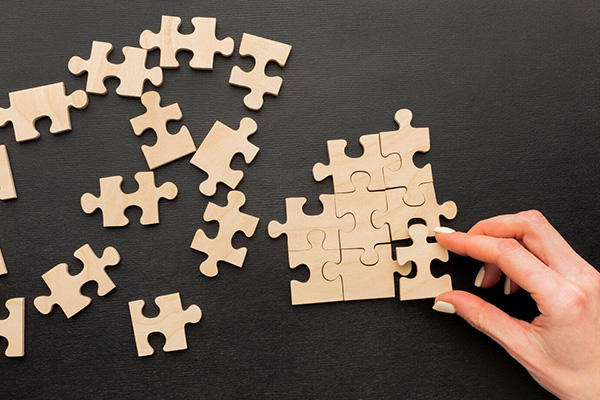
The last word you said was key in life because it is an important part of it. When you start to question, “Is there more that I should be doing,” that first question is a starting point of, “Maybe it's time for me to do some more experiments and see what else I want to put out into the world.” That is the catalyst that you need to start doing more.
What kind of catalysts do you see people like that are changing people? What are the catalysts that are coming up at those flashpoints where all of a sudden, people are saying, “I got to change, do something new, or do something different?” Is there a category? What's the most common?
I love that you asked this question, especially at this point because you know that I wrote a book called Campfire Lessons For Leaders. That captures a lot of these stories in a lot of ways about what were the things that people have experienced that got them into this flashpoint moment. They're not all coming from dark moments. Some of them are. Sometimes there are people on the edge of suicidal ideation and realizing that they have something to live for and then that thing they live for becomes their purpose and the thing that their life is meant for. That's pretty dramatic.
Sometimes it's simply they're doing a job and they realize that this job is not serving them. There's got to be a better life out there waiting for them. That is a different story because it's not life or death but it is something that they realize that they could be doing more. They start experimenting and realizing a different path. You can see the difference between those two but there's also a dichotomy of many different things between having people seeing something in them that they don't see and then that becoming a catalyst, which is also a beautiful way of looking at things. It’s having people who believe in you and asking them, “What do you see in me that I don't see?”
That's a wonderful thing to do as a person to always go there. A lot of people will say, “I don't want to rock the boat,” but being able to tell somebody, “I can see so much more for you or a different angle on it.” For my Future Proof community, I feel almost religious about it. It touched me to see a group of people in a cohort of 8 to 12 people who sit around and somebody is thinking about, “What's next for me? What are my values? How can I live them in my work?” Some of the comments I've heard are, “When I feel uncomfortable, that's when I know something's working.” It changes the framing of the other person.
The others are these challenges where we do personal statements like, “Here's how I'd like to introduce myself the next time I'm at a conference.” Somebody will say, “You're so much more than that. What about this thing you told me about climbing a mountain or the way that you mentored that young kid and he became something extraordinary?” It opens people up to their power and possibility. I love networks of people for that reason, the connectedness and relationships that people sometimes approach transactionally or take for granted.
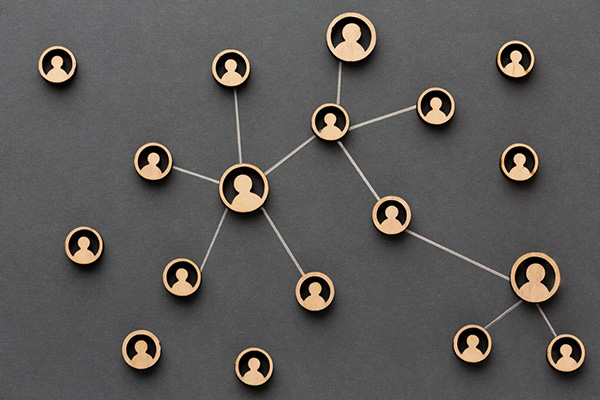
I love that you went here because this is exactly where I wanted you to head to lean into how are you using the things you've learned to push the envelope of helping others. I want to rewind and take you back into your story. Tell me what happens next as you get into this process of your friend taking her life, and you going in and writing a book. What happens next in the journey? Tell me if there's another flashpoint you need to uncover.
It's interesting that you mentioned the positive flashpoint because one of the flashpoints is so boring and not particularly positive but it was one of those, “Life could be better,” moments was sitting in my office during budget time, looking at all the spreadsheets, and blocking off all this time. You roll everything up from all the different markets about what they said they think is possible and why. You put it all in and then you're trying to negotiate up the chain saying, “Sorry, we can only give you 5%.”
I'm sitting there at the office and thinking my kid has gotten twenty cavities or something. I was like, “We do this exhaustive process. What if I spend as much time setting my life goals and our family goals, working towards them, and measuring them as I did for my company?” It was this light bulb moment where I realized I was spending all my time and effort.
My chi focused on making these goals partly because they were clear. Everybody knows that one of the reasons it's nice to work and it's hard to be at home is that the goals are clear. They give you money for doing them and for all the politics. It's still a lot easier than coming home to a toddler who's like, “I wanted the red lollipop,” and the world is ending. That was a moment when I thought, “Where's this going, all this investment, time, and energy? What if I invested similar time and energy in my life?”
One of the things that we say is it's important to create extraordinary work in the context of a satisfying life. Not to forget that the whole thing is work in the context of a satisfying life. If you don't have that, then what are you doing? The other one is don't settle for what you've been given. Work hard for what you want, which is I would say the ethos of the people that I attract and surround myself with who are like, “I'm the CEO of this big international bank but I want more for myself.”
Don't settle for what you've been given, work hard for what you want.
I call it differently ambitious where people are like, “You could have been the CEO of the global bank but instead you decided to launch a tech startup.” We only have one life. You could do many different paths. Whatever is making your heart sing is what's important. Also, investing in all these different things so you have your health and these amazing relationships. You have a family if that's part of your thing. You climb mountains or travel instead of getting to the end and going, “I missed out.”
I love what you shared because there's something about this that has me thinking about first of all your friend had you thinking differently about your life choices along your journey to think, “I want to be more intentional with my choices. I can be more intentional.” When I think about this whole idea, it reminds me of the first book that I wrote called Climbing The Right Mountain. It’s defining success on your terms. It has been said many times but the reality is that you can choose to be the CEO of Google or whatever company as big as you want.
I thought, “Maybe it's time for me to write Google and let them know it's my turn to lead.”
It would be great to have a fresh perspective. What I'm getting at is a sense of the choices you make as long as you make them intentionally and not based on what everyone else is telling you should choose. At the end of the day, you can be able to be satisfied like, “I made those choices with my eyes wide open.”
That is exactly what this process that we're going through because I've taken hundreds of people who are often successful executives through this process. The interesting thing about it is a lot of it is about understanding your values, whether or not those values are showing up in your life and work. The interesting thing about it is that some people come in going, and it is one Future Proofer, an executive recruiter, “I've had enough. I hate this. I can't do this anymore. I make so much money but I work 80 hours a week. I want to go work for a nonprofit.” We went through this process of like, “What are your values? How do you think those values will show up in this new position?”

At the end of it, she went back to executive recruiting but she had identified her values, what was important to her, and what she wanted to be saying about herself that aligned with those values. She's like, “I love helping people find work.” She did 50 coffees with NGOs. She got a solid idea of what that looks like. The interesting thing is she's back in executive recruiting but she's happy.
It wasn't the job change, which we all love. It's like, “I need to change my job. My whole life will be happy.” It was that process of intentionality to understand, “What it means something to me?” It's different for each person. “What am I going to do to find the right environment, people, and way I spend my day that it's all aligned, humming, and resonating?”
There's something about that. We should start with the fact that if you feel a little stuck and you've lost the color of what you're doing, start with 50 coffees, teas, or whatever it is. See if through those conversations, you either ignite the spark again or decide that there's a different path. It's stuck in our little world. We're not going to solve the problem staying in our heads.
I'm somebody who has a lot of coffee. I'm not sure it always works. Sometimes you go, “Woo.” People go, “Why did you write Future Proof?” I'm like, “I had 80 coffees and I thought if I was going to continue on this level of caffeination, then I probably was going to risk my health. I had to write a book so that we could have a collective that it would be instead of a virtual campfire, it was my virtual cafe coffee shop lurgy from the holidays.”
It's the intention. It's like jack corporate innovation. My assumption is that if I go into nonprofits, I'm going to be so much happier. One of the assumptions is I'll make 25% of my income but I'll be happier. Go into it with an intention to understand or an assumption that you're trying to gain more information about and then be intentional about saying, “What did I learn? It's true. I'm going to make 25% of my income. There's politics there. They're the same as Goldman Sachs.” That's what I would recommend in terms of going to the coffee and learning.
I've been saying this little catchphrase of mine, which is you have to leap to learn. Sometimes you leap into those conversations to learn more and then you can take the steps you need to, whether it's time to start a new business or get into a new field but you have to take that step first, which is the coffee, conversations, experiments and find out more information so you can learn more.
It changes. You may change the way that you think you'll go forward. I'm a person who does that anyway. I'll give you an example that was in my book. When I was thinking, “I've been in my job for a while. It's clear that for me to move ahead, I'll have to move countries. I'm not sure if I want to do that.” I thought, “What was the best job that I had?” I loved working. During the whole dotcom era, I worked for startups, one flamed out, and then the venture capital company hired me. I loved that job. It was seeing all these startups and people with so much energy and hope. I was a deal source, analyzer, and operating partner because they were early stages. I thought, “That's what I'll do.”
I had a bunch of coffee and there was a company that said, “We want you to be a partner.” The reality is to do that at this firm was like, “We're not going to pay you. You're going to pay.” If our startups get in trouble, then we're going to have to find additional capital. You could provide that capital to me. It is this collective of people and they were doing well at that time. I talked to my husband and he was like, “It'd be great if you didn't travel and you were around for the kids more but that sounds like a huge risk.”
I went on the advisory board for them. I didn't become a partner. I continued my corporate job and carved out a certain amount of money that I invested in startups. I spent one year figuring out if that was interesting to me. It turns out it wasn't. There are ways to do things that you have to leap but you can also experiment. Not every experiment is running off a cliff without a parachute.
Not every experiment is running off a cliff without a parachute.
My background was in finance. I always think about you taking measured risks. You're not going to take risks that put you so far out that you can't return but you are able to take a risk that you're willing to take that allows you to still come back if you need to that it's manageable.
I moved to Asia many years ago. It was with a nonprofit and a grant from The Henry Luce Foundation. When all went forward, it was 25% of my income that I made that year. A couple of years after business school, everybody was like, “You're crazy. You work for a consulting firm. You could be a partner if you grind for four years. You live in New York City. You have a rent-control apartment on the Upper Westside.” The apartment was the sticking point. I was like, “I love this apartment. How could I leave?” One of my friends said, “You can always come back. You go out for ten months to Asia.” It turns out he was wrong but it is a measured risk. I was 28. I could change course. We can change course much more than we think we can.
It’s such a great story. Every time you share something, I always think about how you've done so many things that have put you out on the edge of your skis but you've done it in a very thoughtful way. Ultimately, it worked out. You're continuing to take those chances. It's amazing, your stories in general. I want to know what's next. What was the next moment that had you challenged? Maybe it was the book. Eventually, the book comes into play but when did you decide to go out on your own?
That initial catalyst was that spreadsheet moment when I thought, “What am I doing?” I'm such a committed worker bee that I loved and still love the company I was working for and I like the people. It was that weird moment where I was like, “I love all this. I'm super into it but where is it going? I've been here for eight years. What's the cost of all of this?” A true success is knowing what the cost is. The cost of it was a lot of the other parts of my life. It wasn't all at once but it was this click. All of a sudden, I told for instance my boss at the time, “I think I need to do something else.”
True success is knowing what the cost is.
I'd been there for long enough that that was a conversation that could happen. Our company was being bought by a new owner. I tried a couple of things out. It was on the M&A transition team but something had clicked. I was like, “There are probably a lot of people in my position. Maybe it's helpful.” Before that, I did interview with all the different competitors for all the different jobs that were the same but with a new logo on it. All of those were like, “Ugh.” One of the things that I realized through this process, I frankly was like, “I'll keep doing a couple of things for you. I still work for my old company.” They were like, “You left.” They had a big goodbye party. On Monday, I was in again and they were like, “We thought you left. We had a party for you.” I was like, “Didn't you get the message?” It's a great company.
It feels like something you'll always be a part of. I talked to the CEO of the Wall Street Journal who used to work at the Financial Times during that conversation with other people part of it. He was like, “I get it, your blood runs pink,” because it's a pink newspaper. It’s a super strong culture. During that time, I was like, “No.” It was internal. I left but I was still consulting for them. I allowed myself a year to think. I felt like I needed the white space to think about what I could do next.
I told my husband, “Midlife crisis. You get a Ferrari if you want.” My midlife crisis is going to be time. I'm going to take this time and do different things that might be interesting. I did so much work on myself. Some of the reasons that I help other people is I was like, “I didn't have to quit my job, think about all this stuff, and spend all this time sitting at my desk.” I did my values. I traveled a lot, too. I went to Mongolia and the all-time mountains in the middle of nowhere. It seems pretty cliché me to do that, go sit on the mountaintop, and find enlightenment. What was the most important is the values work. That's foundational to my Future Proof community and almost everything else I've done.
The teaching I do is, “What are your values?” I’m spending the time to know those. I realized learning and growth are some of my top values. Anything that I do that includes that is going to make my heart sing. Anything I do that does not is going to be a huge grind for me. Every year, I go through that process again and that has helped me. I left and played around for one year. My parents both got sick. The book was about these coffees. Everybody who I was teaching that was in the board director program who are all C-Suite, high-level people were like, “What should I do with my life?”
“I am in the middle of my midlife crisis. I don't have time for this. Why are you asking me?” I am asking the same question they're asking. They're all saying, “I'm 50, 55, 45, or whatever it is. I got a lot more runway but I'm at the top of something. I've proven to myself and others that I can put a suit on, go to the office, and not get fired, succeed, or whatever benchmark you had for yourself.” For some, it's high. That was my book. It was like, “Now, what for us in this phase of life between 45 and 75?” We've got a lot of energy and wisdom. We're happy to contribute but we don't want to do that on somebody else's terms. We're ready to do it on our terms.
I learned so much from my process. I went out and interviewed a whole bunch of people that I was interested in and made them have coffee with me. I then wrote the book. Since the book, people have been like, “That was so good. Can we get together and work through this process together?” I was like, “That's genius.” We did an online course in the community and it is golden. It's like, “That's what we need to do. We need to all do our values, talk about them, and help each other out as we go forward.” Sometimes we need to stay connected because if you're starting something new and you don't have a team and the water cooler, you need a lot of friendship, conversation, and connection. You need a network.
It's cool what you're sharing because I love the fact that you're at first like, “Why are you coming to me?” In many ways, they're coming to you because they feel that you are the one even though you are going through the same thing that they are. That's exactly why you're the right person. You're set up for it to be able to help them because you understand them in a sense. Would you agree?
Deeply.
With that, you connected on that level and allowed you to become that person who could help serve them best, at least initially. I love the way that the book came to being and how it didn't stop at a book. It started a movement for you to bring people together and continue to help and serve them as a community, which is cool. I wanted to know one more thing from you, which is what is one thing you've learned about yourself that you feel you want to share that you haven't already shared, like a lesson learned? Challenging questions, I know.
Some of my lessons learned have been that I can get quite distracted. I can't believe I'm being so honest. You bring the worst out of me. It's been that you can have a very superficial level of success, even in this new life. I can be on social media, speaking, and look great from the outside and that needs to match with the inside. Sometimes as you go off like, “Paul looks good,” I'm very aware that there are some people who are in miserable corporate jobs who are watching me on social media going, “If only I could have that, then my life would be perfect.”
This is a recurring theme in all of our lives. It is for me too. Sometimes I spend time fueling that superficial version of Diana for my ego. One of the things that I've been trying to do and be much more intentional about is not spend as much time on that, which as a person who's in business, is like, “It funnels back to my business.” That is true but be more intentional about measuring impact in ways that are more important to me. I’m thinking about how many people can I help. What's the best way to get them involved in our community?
If that means zero social media and speaking, then that's what it should be. Settle and get a bit more grounded about what's important. It's like the spreadsheet moment like, “What if?” Most of my conversations with myself started with it. That doesn't matter. I never know the answer going into these experiments or questions. What if the way that we measured success was more grounded, my lesson learned, or that's my assumption about the lesson I'm going to learn?
I love what you shared because it's more connected to my experience and a lot of people’s experiences out there. There are a lot of perception challenges that we have. We try to put out a perception and then we realize that we also have to be careful about making sure that it's resonant with who we are. Nothing is as it seems so we have to be careful. What you shared, at least how I understand it, is that I'm always a little bit careful about people feeling like, “He is knocking it out of the park. How amazing. That's great. That's so cool.” At the same time, it's like, “Yes, but I've got down days and I'm still doing things that I don't love doing because that's part of life.”
My other lesson learned, I have to say, which is important is using bad moments or feedback as a catalyst for growth. Not bad like somebody died but I went to Columbia Business School because my dad told me he didn't think I could get in. I've had some conversations that have been like that like, “You're not all that.” There's that, “Somebody finally found out what a fraud I am.” I was like, “Watch me.”
It's interesting because we could go into a whole tirade about this.
Next, we'll do that.
I want to make sure I respect your time and I have one last question for you. My last question is, what are 1 or 2 books that have had an impact on you and why? I ask this to all my guests.
I am a huge reader. If anybody reading this has book recommendations for me, they can hop on LinkedIn at @DianaWuDavid and tell me. I have this book that's unusual that I don't think you've had before on your show. It's called Gift From The Sea by Anne Morrow Lindbergh. It is 60 years old. She talks about life stages using metaphors of her time on the beach and at the sea in a way that transcends time. I work in this place where people are like, “I don't know what to do about AI. How are we going to deal with change? How's my career going to last? I'm going to live 200.” I read that book and I'm like, “It has always been us.” We have always thought that we are in this moment that is difficult and changeable. It speaks to the character that we need to develop to live life long.
I'm going to check this out because I've never heard the book before and that is a first. I'm thrilled. Thank you for sharing that.
My pleasure.
Diana, I have to start by saying thank you very much for being on the show. This has been a great conversation. I could keep on going. There are so many great things we've covered and I want to talk more but we have to come to a close.
Thank you so much for having me, Tony.
Before I let you go, I want to make sure that I can share with everyone who's reading where they can find you. What's the best place to find you?
My website is DianaWuDavid.com. I'm on LinkedIn as @DianaWuDavid. We have a website for our courses called Future Proof Lab. On either of those, you can find something that I developed based on all these coffee, which was eleven questions to find out your future. It looks through all the different things that I found to future-proof your career in life. It's a place to start where you can say, “That's what I'm missing. That's what I need to work on,” and go from there.
The timing couldn't be better. We're at the beginning of the year. This would be a perfect time for people to jump in. We're waiting for the Future Proof Lab coffee brand to come out. There is so much about coffee. Why not?
I'll work on that. The next episode will be my coffee announcement.
Thank you so much for sharing. That's a wrap. Thank you for coming to the show.
Thank you.
Important Links
- Future Proof: Reinventing Work In An Age Of Acceleration
- TEDx Talk - The Difference Between Running And Running Free
- Campfire Lessons For Leaders
- Climbing The Right Mountain
- @DianaWuDavid - LinkedIn
- Gift From The Sea
- DianaWuDavid.com
- Future Proof Lab
Love the show? Subscribe, rate, review, and share! https://www.inspiredpurposecoach.com/virtualcampfire


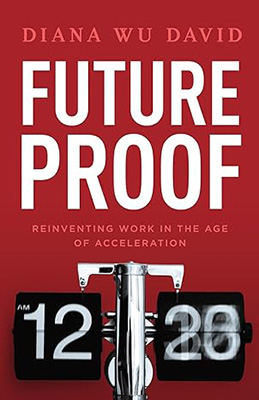
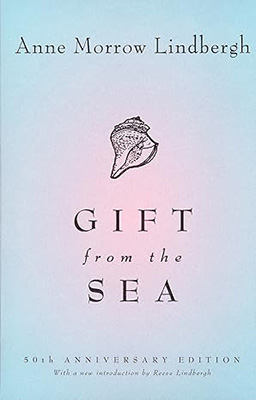
0 comments
Leave a comment
Please log in or register to post a comment